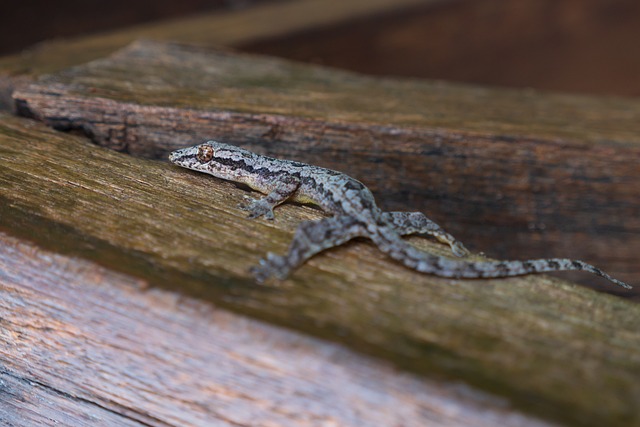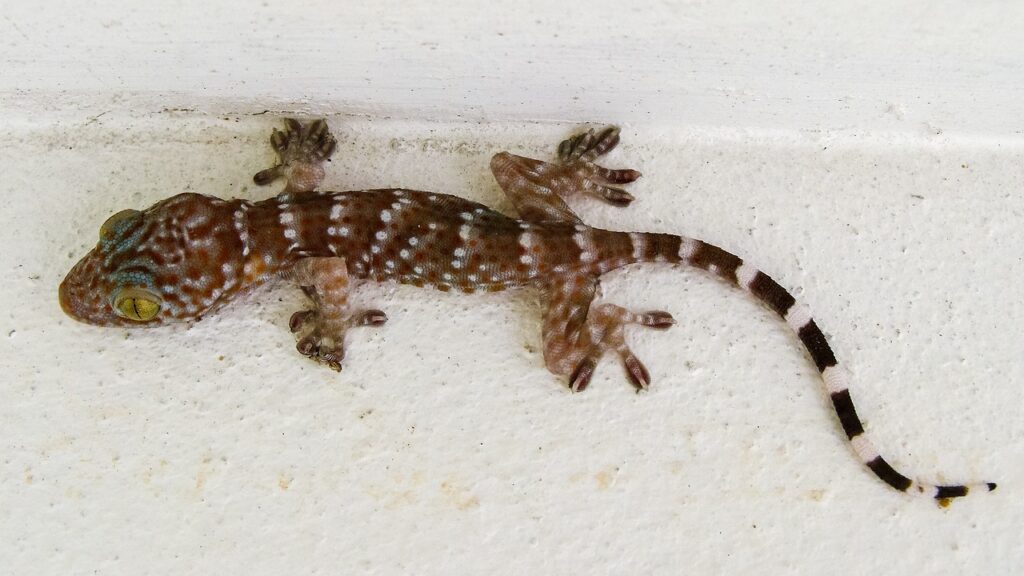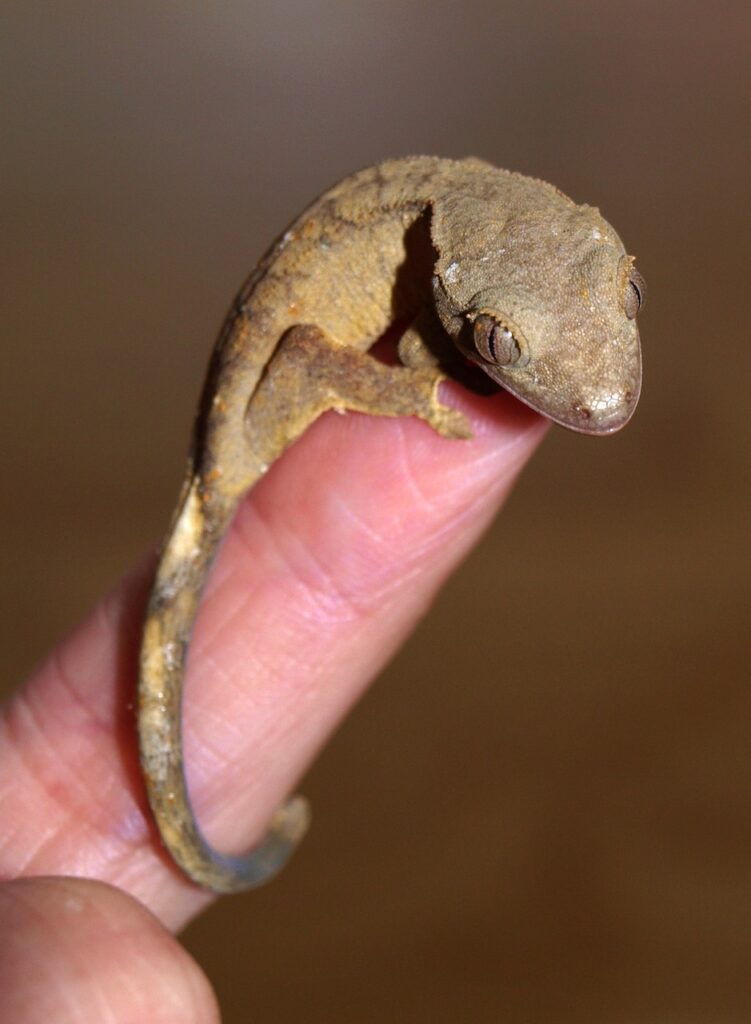
So you’ve become the proud owner of a pet gecko, huh? Congrats! These tiny, scaly creatures make wonderful companions, but they also come with their own set of guidelines for proper care and handling. Whether you’re a first-time reptile owner or just need a refresher, “Dos and Don’ts for Handling Your Pet Gecko” has got you covered. In this concise and informative guide, you’ll learn everything from the best way to hold your gecko to the behaviors you should avoid at all costs. With these helpful tips and tricks at your disposal, you’ll be well on your way to creating a happy and healthy home for your beloved gecko.

Dos for Handling Your Pet Gecko
Provide a suitable habitat
When it comes to handling your pet gecko, the first step is to ensure that you provide a suitable habitat for them. Geckos need a secure and comfortable enclosure that mimics their natural environment. This includes providing temperature gradients, proper lighting, and a suitable substrate. By creating a suitable habitat, you are setting the foundation for a healthy and happy gecko that will be more likely to tolerate handling.
Handle with clean hands
Before you handle your gecko, it is important to wash your hands thoroughly with warm water and mild soap. This is crucial to prevent the transfer of any harmful bacteria or substances that could potentially harm your gecko. Geckos are sensitive creatures, and even the slightest residue on your hands can have negative effects on their health. So, always make sure to clean your hands before interacting with your pet gecko.
Approach your gecko slowly and calmly
Geckos are known for their skittish nature, so it is essential to approach them slowly and calmly. Sudden and rapid movements can startle them, causing unnecessary stress and potentially leading to defensive behaviors such as biting or scratching. By approaching your gecko in a slow and calm manner, you are allowing them to feel safe and secure in their environment, making handling a more positive experience for both of you.
Support their body properly
When you pick up your gecko, it is essential to support their body properly. Geckos have delicate bodies, and improper handling can lead to injuries or stress. To support their body, gently place one hand beneath their belly, taking care not to apply too much pressure. Support their legs and tail with your other hand, ensuring that their entire body is fully supported. By supporting their body properly, you are minimizing the risk of injury and ensuring their comfort during handling.
Hold your gecko close to your body
While handling your gecko, it is best to hold them close to your body. This provides them with a sense of security and makes them feel protected. Holding them close to your body also helps them feel the warmth of your body temperature, which can be comforting for them. Avoid holding your gecko too far away from your body, as this may make them feel exposed and vulnerable. Keeping them close to your body will help them feel safe and at ease during the handling process.
Use a gentle touch
Geckos have sensitive skin and can be easily injured if handled roughly. It is essential to use a gentle touch when handling your pet gecko. Avoid applying excessive pressure or squeezing them, as this can cause harm. Instead, use a gentle touch and stroke their body lightly. This will not only prevent any potential injuries but will also help to build trust and a positive relationship between you and your gecko.
Start by handling for short periods
When you first start handling your pet gecko, it is important to start with short handling sessions. This allows your gecko to become familiar with being handled without becoming overwhelmed or stressed. Begin with just a few minutes of handling at a time and gradually increase the duration as your gecko becomes more comfortable. Starting with short handling sessions helps to build trust and confidence between you and your gecko, ensuring a positive and stress-free experience.
Gradually increase handling time
As your gecko becomes more comfortable with handling, you can gradually increase the duration of each handling session. This can be done by adding a few extra minutes to each session or by gradually increasing the frequency of handling. By slowly increasing the amount of time you spend handling your gecko, you allow them to become accustomed to the experience and further develop trust and confidence in you as their caregiver.
Create a positive handling experience
To create a positive handling experience for your gecko, it is important to make sure that they associate handling with positive experiences. Offer them treats or rewards before and after handling sessions to reinforce positive behavior. Use a calm and soothing voice when interacting with your gecko to help them feel at ease. By creating a positive association with handling, you are more likely to have a gecko that is comfortable and cooperative during future handling sessions.
Observe your gecko’s behavior
While handling your gecko, it is crucial to pay attention to their behavior and body language. Geckos have their own unique personalities and may exhibit different reactions to handling. Observe how your gecko responds to being handled and adjust your approach accordingly. If your gecko shows signs of stress or discomfort, such as tail twitching or attempting to escape, it may be best to end the handling session and give them some time to relax. By observing and understanding your gecko’s behavior, you can ensure their well-being and tailor your handling techniques to suit their needs.
Don’ts for Handling Your Pet Gecko
Don’t handle your gecko too frequently
While handling your gecko is an important part of building a bond with them, it is crucial not to handle them too frequently. Geckos need time to rest, eat, and explore their enclosure without excessive handling. Overhandling can cause stress and discomfort for your gecko, and it is essential to respect their need for personal space.
Don’t squeeze or apply pressure
When handling your gecko, it is crucial to avoid squeezing or applying excessive pressure. Geckos have delicate bodies, and rough handling can lead to injuries or stress. Never squeeze or grip your gecko tightly, as this can cause harm to their internal organs or bones. Remember to always use a gentle touch and ensure that your gecko feels secure and comfortable in your hands.
Avoid abrupt or sudden movements
Geckos are easily startled by abrupt or sudden movements, which can lead to stress and defensive behaviors. Avoid making any sudden movements or jerking motions when handling your gecko. Move slowly and calmly, allowing your gecko to feel safe and at ease during the handling process. By avoiding abrupt movements, you can create a peaceful and stress-free environment for both you and your gecko.
Don’t disturb your gecko during shedding
When your gecko is going through the shedding process, it is best to avoid handling them. Shedding is a natural process for geckos, and they require a certain level of privacy and peace during this time. Handling a gecko while they are shedding can cause discomfort and potentially disrupt the shedding process. Allow your gecko to shed undisturbed and resume handling once they have completed the process.
Avoid handling when they are stressed or agitated
If your gecko is showing signs of stress or agitation, such as hissing, biting, or tail flicking, it is best to avoid handling them. In these moments, your gecko may be feeling threatened or uncomfortable, and handling them can increase their stress levels. Give your gecko some time to calm down and relax before attempting any handling. It is crucial to prioritize their well-being and provide them with a stress-free environment.
Don’t hold your gecko by the tail
Holding your gecko by the tail is never recommended. The tail of a gecko is delicate and can easily break or detach if handled improperly. If a gecko’s tail breaks or detaches, it can cause stress and potential health issues for the gecko. Always handle your gecko by supporting their body, avoiding any unnecessary pressure or strain on their tail.
Avoid interactions with other pets
When handling your gecko, it is essential to ensure that they are in a safe and controlled environment, free from interactions with other pets. Interactions with other animals, such as cats or dogs, can be stressful and potentially dangerous for your gecko. Keep your gecko away from other pets during handling to prevent any injuries or accidents.
Don’t handle your gecko while they are eating
Geckos require a peaceful and uninterrupted environment during mealtime. It is best to avoid handling them while they are eating to prevent any disruption to their feeding routine. By allowing your gecko to eat undisturbed, you are ensuring that they can consume their food properly and without any stress.
Avoid unpredictable or loud noises
Geckos are sensitive to loud or unpredictable noises, which can startle and stress them. When handling your gecko, it is vital to create a quiet and calm environment without any sudden or loud noises. Turn off any unnecessary electronics or appliances and ensure that the room is peaceful during handling sessions. By providing a quiet environment, you can help your gecko feel safe and at ease.
Don’t handle if you’re sick or have contagious skin conditions
Geckos are delicate creatures, and they can be susceptible to illness and infections. To prevent the spread of any potential diseases or infections, it is important to avoid handling your gecko if you are sick or have any contagious skin conditions. Illnesses or contagious conditions can be detrimental to your gecko’s health, so prioritize their well-being and refrain from handling until you are fully recovered.
Handling your pet gecko can be a rewarding and enjoyable experience when done correctly. By following the dos and don’ts outlined above, you can establish a positive relationship with your gecko and provide them with a stress-free environment. Remember to always prioritize their well-being, respect their boundaries, and observe their behavior during handling sessions. With time and patience, you and your gecko can form a bond built on trust and mutual respect.
